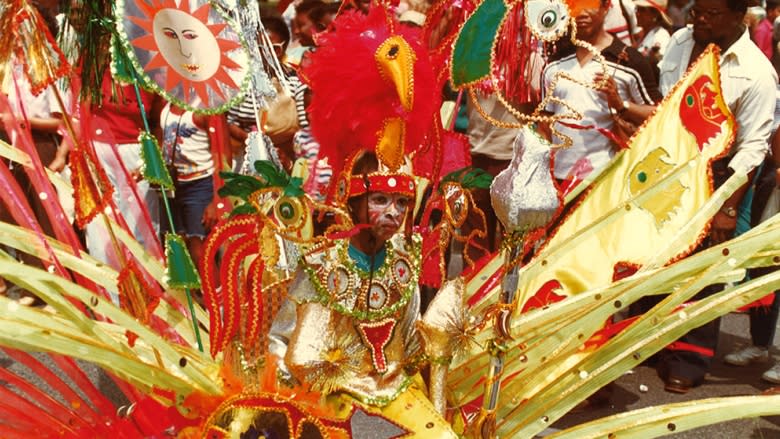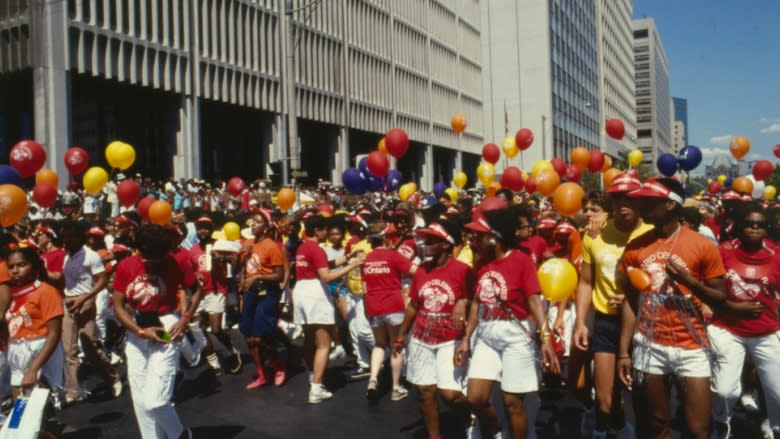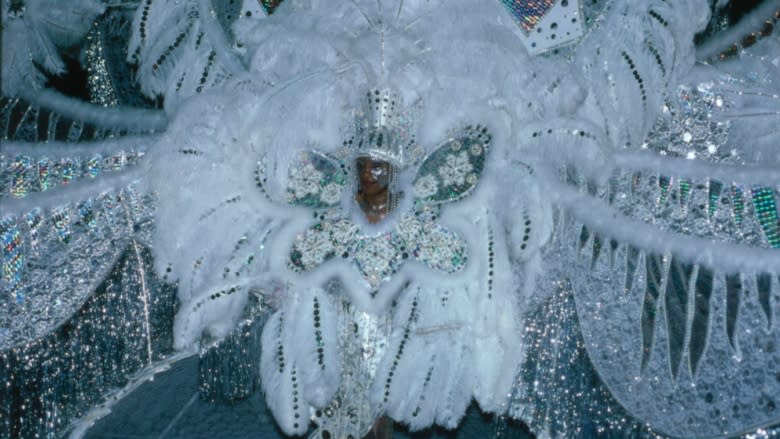How the Caribbean Carnival has changed over the years
Bright coloured costumes and upbeat music have always been a staple in Toronto's Caribbean Carnival, but longtime volunteer Colin Benjamin says a lot has changed about the festival and the city over the years.
The annual festival, which wraps up with the grand parade on Saturday, was first introduced in 1967. It was known at the time as Caribana and it was envisioned as a week-long celebration of Caribbean culture through traditional cuisine, music and parades. Now three weeks long, it continues to take to the streets of Toronto every year during the month of July.
Here's a look at the festival's evolution over the years.
If you have any photos from the Caribbean Carnival between 1967 and 1980 that you want to share, email them to us at tonews@cbc.ca, on Twitter @CBCToronto or through our Facebook page.
1980
"This event started as a Caribbean festival, but now it's really become something much more than that," said Benjamin, who has volunteered for over 25 years.
1985
In the first few decades the event was run, it was much smaller and far fewer people lined the streets, he said. Almost all of the spectators and participants were from the Caribbean community in Toronto.
1990
"It was nice to see our community come out and have fun, but we wanted the celebration to be huge and reach a much larger audience," he said.
2001
In an effort to attract people from farther afield, the Caribbean Cultural Committee - the non-profit organization that planned the event between 1967 to 2006 - sent him to the Caribbean in the early 2000s to promote Toronto's event and recruit more participants.
That strategy proved successful, and more people from the islands and the United States started visiting.
However, he said that even though organizers were happy to host large crowds of visitors, the committee remained concerned about the lack of Canadian presence.
"We've always wanted it to be just as much of an event for Toronto and for Canada as it has been for us," he said. "That was just not the case back then."
2008
The City of Toronto took over the event in 2006, as the Caribbean Cultural Committee faced financial trouble. A rift between the committee and the city over the trademark name Caribana, would see it renamed as the Caribbean Carnival in 2011.
2013
In addition to getting a new name, Benjamin said the festival has seen a lot of change in the past 10 years, as the city evolved.
"This city no longer defines itself with one culture. It's now made up of people with all different kinds of roots and that's created so many more opportunities for celebrations like ours," he said.
As a result, he said the festival's food and music are no longer solely focused on Caribbean culture, and the participants are from a diverse variety of backgrounds. He also said that it now gets support from a number of local businesses who provide food and decorations.
2014
"People are opening their minds to our culture, so we've opened our minds to theirs, and now cultures all across the board are having fun together," said Benjamin.
He said he believes that having all of these cultures "uniting together" for this celebration holds promise for the years to come.
2015
"Allowing future generations from all kinds of backgrounds to take part in and learn about their heritage and their ancestral culture, is what this festival is all about," he said.
"It creates a space of happiness, inclusion and acceptance, and that's been the goal since the beginning."






